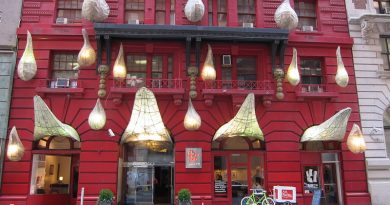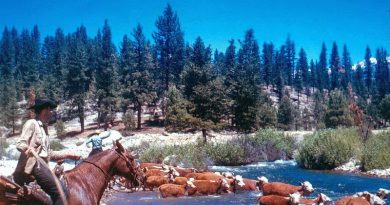Oom-pah and Ale: The Oktoberfest Beer Festival
Festival Essentials
Where: Munich, capital of Bavaria, Germany
When: Last 2 weeks of September
What’s it About: Real ale drinking, hearty eating, agriculture and partying
Go There For: plenty of beer, booze and oom-pah
Where’s the Party?
The Oktoberfest takes place in the last 2 weeks of September, ending on the first Sunday in October and is the highlight of any beer drinker’s year. Around 6.9 million visitors attend every year. Wies’n meadow in Munich gets completely booked out around 6 months in advance and most people book from one year to the next. Oktoberfest is fast food feeding frenzy. 6,000 chickens, 90,000 pork legs and 80 oxen, and the ever present Umtata bands.
The first Oktoberfest was held in 1810, when a public party was held for the people of Munich to celebrate the wedding of the Crown Prince Ludwig to Therese Charlotte Louise of Saxe-Hildburghausen. Everyone had such a good time that it was decided to make it an annual event, and it has grown at a galloping pace ever since. There are now 14 beer tents on die ‘Wiesen (‘the meadow’), each seating around 10,000 punters at any one time and each with its own unique crowd, food specialities, and characteristics.
What’s It All About?
Most people think of Oktoberfest as little more than a gigantic booze-up, but it’ll be a gruelling few days if all you’re there to do is drink. There is much more to Oktoberfest than beer-swilling indulgence: it’s a fascinating window on German culture and folklore.
The festival opens with a colourful parade, when the tent concessionaires ride through the town on brewery wagons. Revellers dress up in traditional costumes from the different regions of Germany, and march through the streets to the sound of the brass bands. An agricultural fair takes place in conjunction with Oktoberfest, as well as a full funfair, pop concerts and soccer tournaments.
Be Prepared
European Nationals do not require a visa to enter Germany. Citizens of other countries may require a visa, even for stays of under 90 days. If in any doubt contact the German Embassy or Consulate in your home country before you leave.
Hotel accommodation is at a premium during Oktoberfest, so it’s essential to book five or six months in advance.
Warm clothing is essential, as is a waterproof jacket. If you¹re camping, a sleeping bag that can handle near-zero temperatures is required. The days may be sunny but at night it can turn bitterly cold.
Getting There
Several European airlines operate flights to Munich, including Lufthansa, British Airways and Go. Alternatively, if you¹re coming from the UK you could drive – it takes between 14 and 16 hours from London.
Group journeys to Oktoberfest are also operated by several major tour companies from the UK, e.g.:
PP Travel
5 Irving Street
London WC2H 7AT (UK)
T: +44 (0)20 79309999
F: +44 (0)20 79306666
E: info@pptravel.com
W: www.pptravel.com
Once you’re in Munich, the closest U-Bahn (underground) station to the festival is Theresienwiese U4/U5, but Schwanthalerhöhe and Goetheplatz are also nearby.
Where to Stay
There are plenty of places to stay in Munich, but be aware that prices are inflated during the festival, and you will need to book well in advance. Contact the tourist office for a full list of hotels.
If you’re prepared to rough it and camp through the festival, Camping Thalkirchen is the way to go. However it is definitely a younger crowd that stays here, so prepare for late nights and partying until dawn. Camping Thalkirchen is located at:
Camping Thalkirchen
Zentral Land Strasse, 49
81379 Munich
Germany
T: +49 89 723 17 07
F: +49 89 724 31 77
The campsite is open between March and November and only groups of more than 20 need book in advance.
Other Expenses
Prepare to pay around US$6 for a stein. This breaks down to an actual cost of about US$2 for the house itself and US$4 for the beer maid. It might sound like she’s getting a great deal here, but once you see the beer maids at work you¹ll understand. A full roast chicken retails at around US$7. Allocate US$45 per day for food and drink.
Travel in Munich is inexpensive. US$14 a day will be enough for a train journey to the grounds and the all-important cab fare home. Rides at Oktoberfest cost no more than US$6 ‹ but if you¹ve been drinking, these are probably best avoided.
Once You’re There
The beer halls get extremely crowded and it can be hard to get a seat. Make sure you get in early if you want to join the festivities. Tipping the beer maids sounds obvious, but if you forget, so will they. Beer maids have certain areas they patrol and you’ll struggle to get a beer for the remainder of the day.
While in the beer houses, avoid the wrath of security at all costs. An Oktoberfest-long expulsion for one drunken act is not unheard of. Many visitors also decide to swindle a stein – again, forget it. You may have drunk a few and think you¹re being sly but security is paid to watch for this.
Falling asleep at the grounds is not a good move. If the police don’t get you, someone will relieve you of your possessions within minutes. Leave credit cards, identification and any other valuables behind. Take only the cash you need for the day. This way you’ll have a pre-set beer limit and irreplaceable items won’t go astray.
Some travellers might advise against paying for the U-Bahn – this is a stupid, embarrassing and costly move that will wind up with an extended visit to the police station.
Respecting the locals goes without saying. They rely on the tourism Oktoberfest brings and will go out of their way to ensure each visitor has a memorable visit. The problems at Oktoberfest usually come from the visitors: Germans are used to the beer. The rest of us aren’t.
Local Attractions
Often the Oktoberfest parades originate on the streets of Munich before winding up at the fairground. So no matter where you are in Munich, chances are you¹ll run into some kind of Oktoberfest celebration.
Horse-drawn carriage rides across the city are a relaxing, comfortable way of seeing the city. Another popular way to cruise around Munich and check out the sights is by bike. There are many outlets for half and full-day hiring and cyclists are catered for on the roads. Munich has a remarkable array of museums, including the Hellabrum (the world’s first geo zoo), the BMW museum and the Siemens Forum, an interactive electronics forum. The Englischer Garten(English Garden) in the centre of Munich is Europe’s largest city park, an oasis of calm during the madness of Oktoberfest.
Plan to get out of the city at some stage – you’ll need it. You can hop across the border on a day trip to Austria from here, or for an eye-opening, poignant reminder of Germany¹s recent history, visit Dachau. This was the first concentration camp developed by the Nazis and is just 30 minutes away by train.
Similar Events
Oktoberfest is an event which is increasingly held in cities all over the world, including London, Seattle and even Windhoek in Namibia. So if you can’t make it to Munich, chances are you’ll be able to find beer-swilling shenanigans (albeit of dubious authenticity) closer to home.
MORE INFORMATION
Oktoberfest: Check out the official Oktoberfest website, packed with information about the event as well as features on the finer points of Bavarian culture.
For more practical information about Munich all year round, contact:
Munich Tourist Office
Sendlinger Str. 1
D-80331 Munich
T: +49 89 233 03 00
F: +49 89 233 30 233
E: tourismus@ems.muenchen.de




